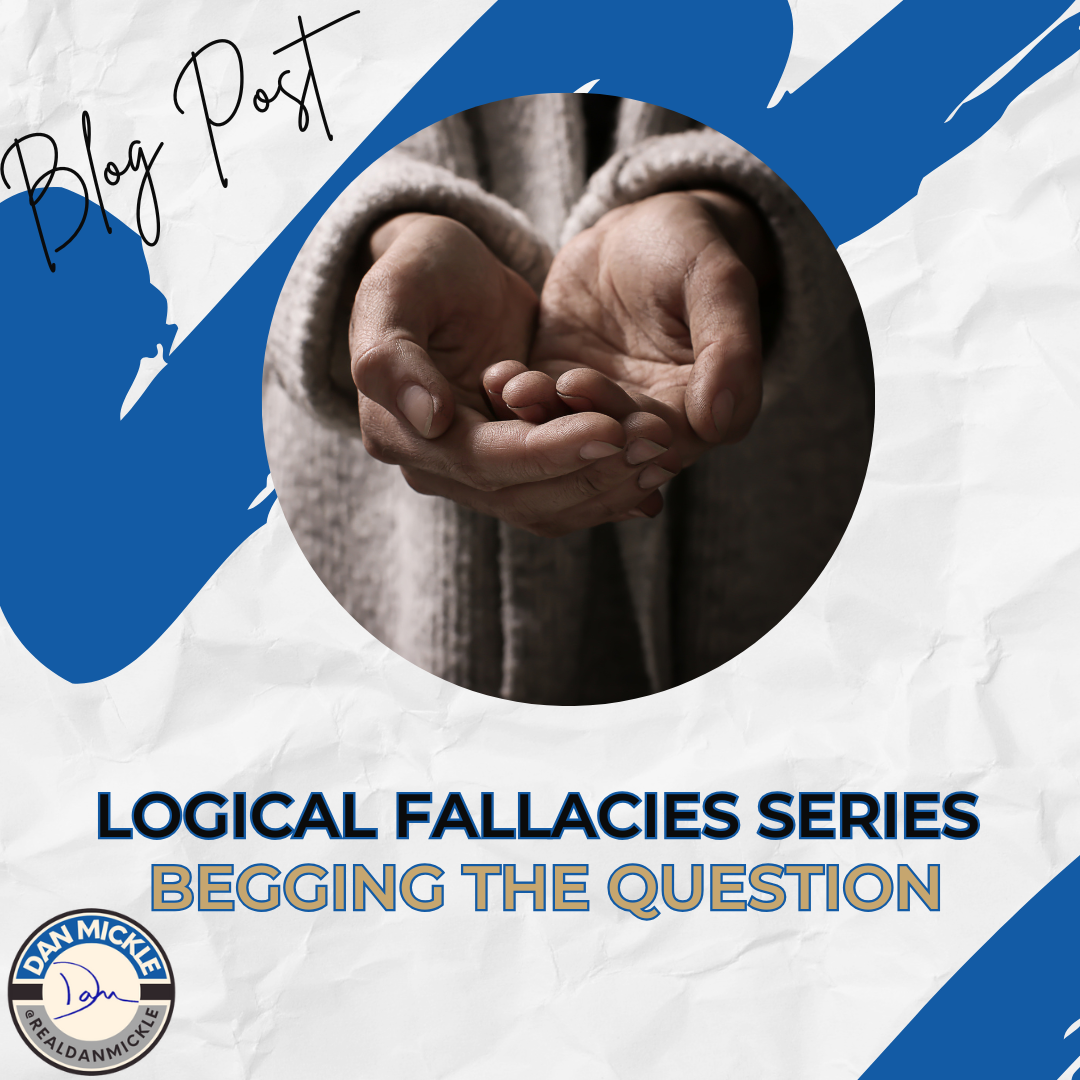The Fallacy Files: Begging the Question in Youth Sports
Welcome back to our ongoing series on logical fallacies and how they sneak their way into youth sports. If you’re just joining us, we’ve already tackled classics like the Slippery Slope and the No True Scotsman. Today, we’re cracking open a fan-favorite among philosophers and the bane of clear thinking everywhere: Begging the Question.
Now, don’t let the name fool you. This fallacy isn’t about asking an annoying question at dinner or saying, “This begs the question: Who thought this jersey design was a good idea?” (Though that is a valid question, especially in the world of youth league color choices.) No, “begging the question” is when someone uses an argument where the conclusion is just a reworded version of the premise. In short, it’s reasoning in a circle.
What Is Begging the Question, Really?
Let’s break it down. Begging the Question (also known as circular reasoning) happens when an argument’s conclusion is assumed in its premise. Imagine trying to prove your team is the best because, well, they’re clearly the best. That’s not evidence; that’s just talking in loops until everyone gives up or agrees out of exhaustion.
Here’s a textbook example: “We know our training program is the most effective because it produces the best athletes.” But when asked how we know they’re the best athletes, the answer is, “Because they came through our training program.” You see the problem, right?
Circular reasoning feels like making progress in a conversation but somehow ending up exactly where you started, with nothing concrete to show for it except maybe a headache.
Begging the Question in Youth Sports
Let’s take a tour through how this logical loop-de-loop plays out in the wild world of youth sports.
First stop: Tryouts. Ever hear this one? “She made the team because she’s a top player.” And if you ask why she’s considered a top player? “Well, she made the team, didn’t she?” That’s a logic circle tight enough to lasso a cow.
Or take this gem from sideline parents: “Coach Mike is the best because all the good players go to him.” And how do we know they’re good players? “Because Coach Mike trains them!” It never crosses their mind that Coach Mike might just be benefiting from pre-existing talent or that his marketing game is on point. Nope. If good players train with him, he must be the best. Case closed. Minds shut.
Even athlete self-talk isn’t safe. “I’m a good leader because people follow me.” But why do they follow you? “Because I’m a good leader.” This kind of reasoning might sound harmless, but it can cement false beliefs and shut down real growth. If you already believe you’re a good leader with no feedback or reflection, why work on communication or team-building skills?
How to Break the Circle: Fixing the Fallacy
The first step to breaking out of the circular reasoning trap is to ask better questions. When someone says an athlete is great, don’t stop there. Ask why they’re great. What skills do they consistently demonstrate? What challenges have they overcome? What specific contributions have they made to the team?
Coaches need to resist the urge to justify decisions with circular logic too. Saying, “This lineup works because it’s our best lineup” doesn’t hold up under scrutiny. Instead, get specific. Is it balanced offensively? Does it have strong communicators? Do the players complement each other’s styles?
Parents can help by modeling and encouraging evidence-based thinking. Rather than praising outcomes alone (“You played great because you won”), highlight specific actions (“Your serve under pressure showed great focus and control”). That not only avoids circular logic but also builds resilience and a growth mindset.
And athletes? They benefit from turning inward with curiosity. Ask yourself: What am I doing that makes me a leader? Where can I improve? Am I relying on titles or outcomes to define me, or am I actually working on the habits that leadership requires?
The Recap: No More Circles
Begging the Question might sound academic, but in youth sports, it’s everywhere: from how teams are selected, to why coaches are chosen, to what players believe about themselves. The danger isn’t just bad logic; it’s that circular reasoning can freeze growth. If we think we’re already the best with no real evidence, we stop striving to get better.
So next time you hear, “This team wins because it’s the best,” take a second. Ask yourself: Are we celebrating actual evidence or just spinning in circles?
In our last post, we dissected the No True Scotsman fallacy and how purity tests can poison development in youth sports. Coming up next, we’ll look at the Anecdotal Fallacy: because sometimes, Uncle Rick’s legendary little league story just isn’t good science.


